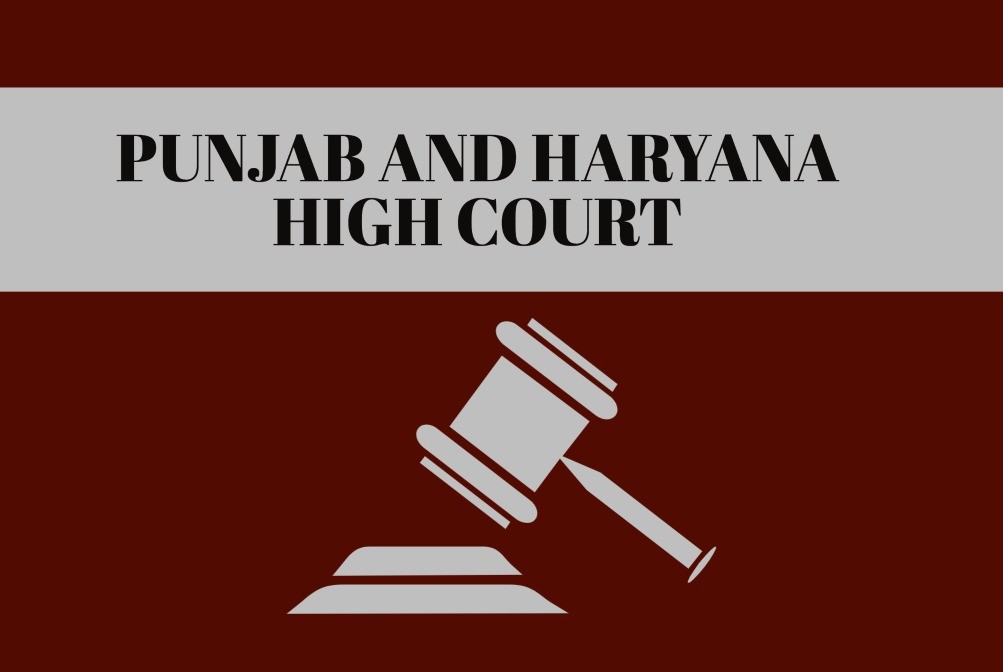Son/daughter for whose beneficial interest eviction of premises is sought by landlord-parent, is not required to plead all ingredients of Section 13(3)(a)(i) of East Punjab Urban Rent Restriction Act if (s)he is not landlord: P&H HC

Read Order: Sumitra Devi v. Parveen Kumar
Monika Rahar
New Delhi, March 24, 2022: The Punjab and Haryana High Court has reiterated that the person who maintains an eviction petition on the ground of bona fide necessity has to be a landlord and that even if the premises (concerning which ejection is sought) is required by the landlord for use and occupation of his/her son/daughter, then the son/daughter concerned is not required to plead all the ingredients of Section 13(3)(a)(i) of the East Punjab Urban Rent Restriction Act, 1949 (the Act of 1949) if (s)he is not the landlord of the premises.
The High Court was dealing with a revision petition impugning the order of the Rent Controller dismissing the petitioner’s plea seeking an amendment to her ejectment application. The Court denied the relief of amendment so sought while relying on one of its earlier decisions.
The factual matrix of the case placed before the Bench of Justice Alka Sarin was such that in July 2013 the landlady-petitioner filed an ejectment application under the provisions of the Act of 1949 against the tenant-respondent seeking his eviction from the shop in dispute. The grounds for eviction raised were non-payment of rent since July 2012 and bona fide need and requirement of property in question.
According to the landlady-petitioner the shop was needed for the requirement of her daughter, who became a widow at a young age and was living with her mother and intended to open a beauty parlour. The tenant-respondent filed a reply and contested the ejectment application. In 2015 the evidence of the landlady-petitioner was closed, and a year later the landlady-petitioner filed an application for amendment of the ejectment application to include a paragraph about her daughter not having vacated any such shop in Pathankot after the commencement of the Rent Act though such an averment about the landlady-petitioner was there in the ejectment application.
The Rent Controller dismissed the amendment application, and thus, the present civil revision petition under Article 227 of the Constitution was filed before the High Court.
The counsel for the landlady-petitioner contended that the amendment sought was only to include the mandatory requirements of the Rent Act where ejectment was being sought on the ground of personal necessity. He further submitted that the proposed amendment would not change the nature of the case nor cause any prejudice to the tenant-respondent. Lastly, he submitted that the landlady-petitioner and her daughter were both widows and were willing to pay costs to the tenant-respondent.
Per contra, the tenant’s counsel vehemently contested the submissions made above, while stating that the amendment sought was highly belated and the amendment application was moved when the trial ended and the case was reserved for orders. It was further his case that the amendment was aimed only to fill up the lacunae in the case and to nullify the arguments raised by the tenant-respondent to the ejectment application. To substantiate his case, the Counsel relied upon the Supreme Court in Ajendraprasadji N. Pande & Anr. vs. Swami Keshavprakeshdasji N. & Ors.
Essentially, in the ejectment application, it was pleaded that the applicant was not occupying another such shop in the urban area of Pathankot after the commencement of the East Punjab Urban Rent Restriction Act, and also that the did not vacate any such building in the urban area of Pathankot after the commencement of the East Punjab Urban Rent Restriction Act. The above-mentioned amendment application was moved to amend this paragraph. The applicant sought the addition of the name of her daughter, as well, in this paragraph.
The Court was to address the question of whether the amendment sought by the landlady-petitioner to also plead the ingredients of Section 13(3)(a)(i) of the Rent Act qua her daughter was necessary for the proper and just adjudication of the ejectment application?
To answer this question, a reference was made by the Court to Single Judge Bench in Gurbaj Singh vs. Parshotam Singh & Ors. (P&H HC) wherein the Court was called upon to decide whether the son of the landlord (therein), for whose benefit the non-residential premises was sought to be got vacated, if not the landlord or the owner himself, was also required to plead the ingredients of Section 13(3)(a)(i) of the Act in the eviction petition?
In this respect, the Single Judge Bench held that the person who maintains an eviction petition on the ground of bona fide necessity, has to be a landlord and has to plead all the mandatory ingredients of Section 13(3)(a)(i) of the Act in the eviction petition and even if the premises is required by the landlord for use and occupation of his son, the son of the landlord is not required to plead all the ingredients of Section 13(3)(a)(i) of the Act if he is not the landlord of the premises.
Applying this ratio, to the facts of the present case, the Punjab and Haryana High Court has held that the amendment sought by the landlady-petitioner was superfluous and not necessary for the proper and just decision of the ejectment application. The proposed amendment would unnecessarily delay the trial, adjudged the Court.
Thus, given the discussion above, the Court found no ground to interfere with the impugned order passed by the Rent Controller, as a result, the present petition was dismissed.
Sign up for our weekly newsletter to stay up to date on our product, events featured blog, special offer and all of the exciting things that take place here at Legitquest.




Add a Comment